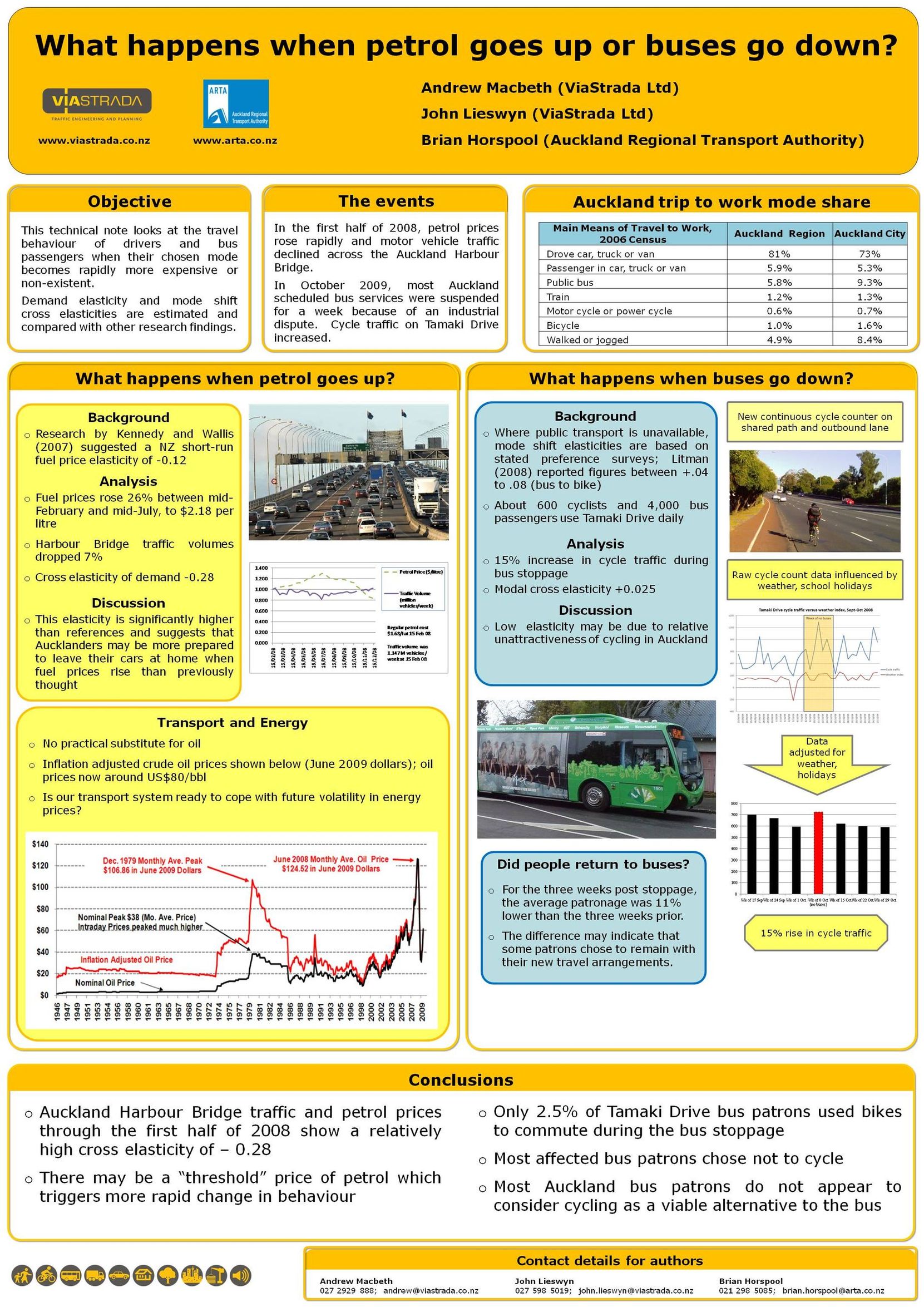What happens when petrol goes up or buses go down?
Where presented / published:
IPENZ Transportation Conference
What happens when petrol prices go up, or buses go down? Following the 2008 petrol price rises and the 2009 Auckland bus driver industrial dispute, Andrew Macbeth and John Lieswyn (both ViaStrada) and Brian Horspool (Auckland Regional Transport Authority) wrote a technical note on this topic. This was presented as a poster (also shown below) at the IPENZ Transportation Conference in Christchurch in March 2010.
Abstract
When petrol prices rose 26% (to $2.18 per litre) in mid-July 2008 compared with mid-February prices, traffic volumes dropped 7% over the same period on the Auckland Harbour Bridge.
In October 2009, one of the city's major suppliers of bus services had an industrial stoppage and over 100,000 passengers per day were left having to find other transport options for a week. Cycle traffic on Tamaki Drive (one of the routes used by the buses affected by the stoppage) increased 15% over this period.
This paper explores various data sets that illustrate transport cross-elasticities. The measures reported here suggest that the extent to which people are willing to change travel behaviour in the face of rapid changes in fuel price or travel mode availability may be greater than previously estimated.
It will be important for urban planners, transport planners and decision makers to consider such behavioural responses to provide a more resilient transport system over the strategic planning horizons used in this country.





